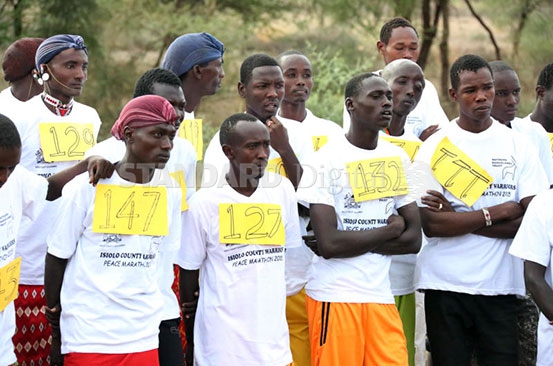×
The Standard e-Paper
Kenya’s Boldest Voice

As the morning clouds drift in the sky, partially obscuring the sun rays piercing through it, a group of young men in traditional sarongs are busy warming up.
Unlike other mornings when they would be preparing themselves to start the long search for pasture and water for the livestock, the group of about 300 young men is huddled in an open field at Ngaremare in Isiolo County, ready for an extraordinary event.